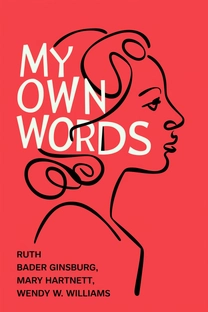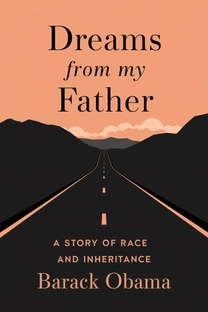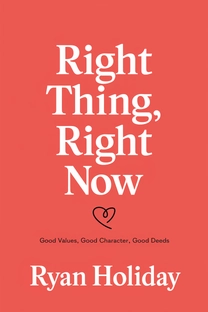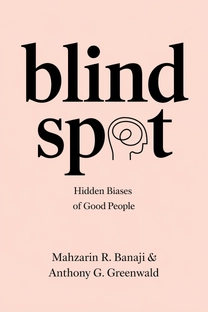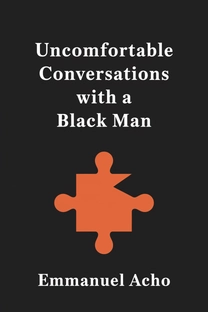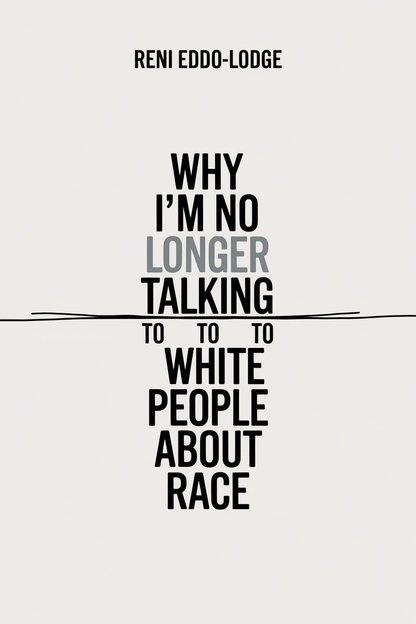
Why I’m No Longer Talking to White People About Race
by Reni Eddo-Lodge
Brief overview
This book examines how racism operates in everyday life and within social institutions. It explores the history that led to structural discrimination, the concept of white privilege, and the importance of open dialogue about race. Through lived experiences and historical evidence, this work calls for deep reflection, collective action, and a commitment to creating a more inclusive society.
Introduction
Racism remains a pressing issue in modern Britain, yet many people struggle to see its presence in their daily lives. In this opening section, the book highlights how race-based discrimination still shapes opportunities and outcomes, despite claims that society has moved beyond prejudice. The author traces the early frustration of attempting to discuss racism with people who denied its validity, leading to a resolve to articulate why race conversations can be deeply exhausting for people of color.
Nonetheless, the book insists that dialogue is key, even if it involves uncomfortable truths. By outlining the disconnect between those who experience racism and those who struggle to acknowledge it, this section sets the tone for a deeper exploration of British society’s uneven power dynamics. It invites readers to join a frank examination of how race is woven into the social fabric, often in ways that go unnoticed or unchallenged.
Above all, the introduction makes it clear that race conversations should not be a one-sided effort. Instead of leaving people of color to do all the explaining, it’s crucial for everyone to engage, self-reflect, and confront the biases they may unknowingly carry.
The Roots of Racism in Britain
Understanding Britain’s current racial climate requires exploring its colonial past. In this section, the book points to historical events that helped normalize anti-Black sentiments—from the early days of British-led slavery to the growth of an empire built on subjugated labor. It underscores that what many see as distant history has ongoing effects, as centuries of exploitation set patterns of racial hierarchy still evident today.
By connecting modern prejudice to its imperialistic foundations, the narrative shows that structural racism is not merely a result of personal animus. Rather, it is embedded in laws, cultural norms, and societal practices passed down through generations. This framework helps explain why racial bias endures, even when explicit racist acts are less visible.
The book also introduces the idea that racial injustice partly thrives when people overlook history. Many Britons, for example, might acknowledge the slave trade’s brutality but fail to see how its legacy informs present inequalities—such as disparities in wealth, employment, and representation. Recognizing these roots is a first step toward meaningful reform.
What is Why I’m No Longer Talking to White People About Race about?
“Why I’m No Longer Talking to White People About Race” uncovers how racism endures in social institutions and everyday life, especially in places where many assume equality has been achieved. With clear insights into Britain’s colonial legacy, Reni Eddo-Lodge shows that discrimination doesn’t belong to the past—it shapes laws, media portrayals, and job prospects in tangible ways. This book calls attention to the concept of white privilege and challenges readers to rethink assumptions that keep racial hierarchies in place.
By weaving personal experiences with a deep historical lens, the author underscores why open dialogues about race are essential for building genuine solidarity. This work isn’t just about pointing out problems; it pushes for collective reflection and a shared commitment to creating a more supportive and inclusive society. Eddo-Lodge’s writing offers an unflinching look at injustices while inviting readers of all backgrounds to reconsider their roles in the fight against racism.
Review of Why I’m No Longer Talking to White People About Race
This book stands out for its honest assessment of how racism hides in plain sight within British culture, using lived examples and historical data to paint a holistic picture. The author excels at breaking down the personal toll of discriminatory attitudes, yet also explores the institutional structures that perpetuate inequality over generations. Readers gain practical ways to acknowledge white privilege, engage in meaningful cross-racial discussions, and advocate for change.
Despite handling a complex topic, Eddo-Lodge’s style remains accessible—she balances candor with compassion, ensuring a wide audience can follow her arguments. The text speaks to activists, policymakers, and anyone seeking deeper awareness of racial issues in daily life. It closes with the clear recommendation that meaningful progress requires active listening, genuine collaboration, and a willingness to confront uncomfortable truths.
Who should read Why I’m No Longer Talking to White People About Race?
- Policy professionals seeking to address systemic racism through regulations and reforms
- Educators who want to promote inclusive dialogues in classrooms
- Managers and HR specialists aiming to cultivate fair workplace cultures
- Community organizers and advocates dedicated to racial justice
About the author
Book summaries like Why I’m No Longer Talking to White People About Race
Why readers love Mindleap
10-Minute Book Insights
Get the core ideas from the world's best books in just 10 minutes of reading or listening.
Curated For You
Discover your next favorite book with personalized recommendations based on your interests.
AI Book ExpertNew
Chat with our AI to help find the best book for you and your goals.
Reviews of MindLeap
Love how I can get the key ideas from books in just 15 minutes! Perfect for my busy schedule and helps me decide which books to read in full.
Alex R.
The summaries are incredibly well-written and the audio feature is perfect for my commute. Such a time-saver!
Jessica M.
Great app for personal growth. The insights are clear and actionable, and I love how they capture the essence of each book.
Chris P.
The app is beautifully designed and the summaries are top-notch. Definitely worth every penny!
Sarah K.


